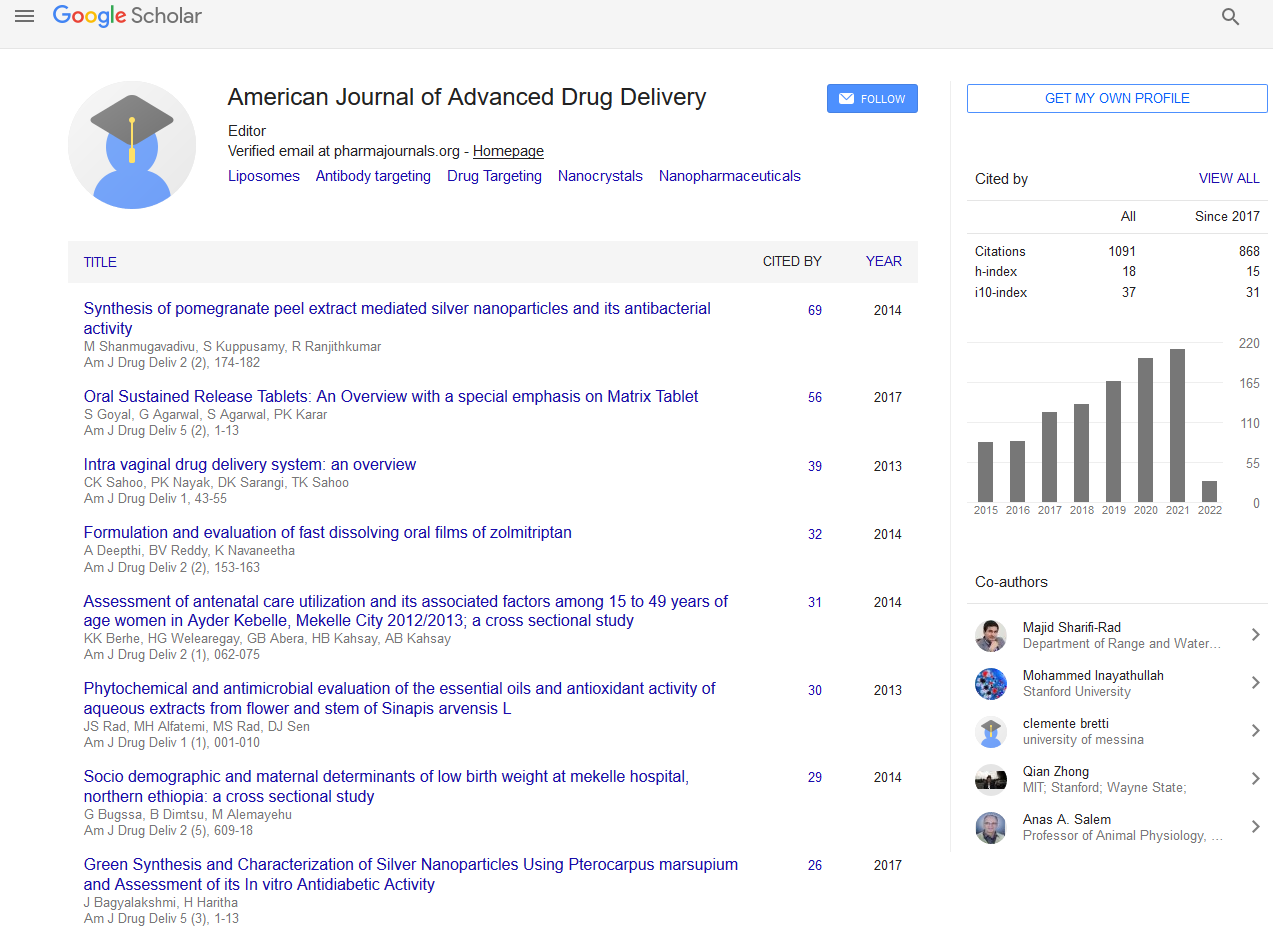Short Communication - (2023) Volume 11, Issue 3
The Looming Crisis: Long-Term Drug Issues and Their Devastating Impact
Cheng Huan*
Department of Medical Sciences, California University, USA
*Correspondence:
Cheng Huan,
Department of Medical Sciences, California University,
USA,
Email:
Received: 30-Sep-2023, Manuscript No. IPAAD-23-18214;
Editor assigned: 01-Sep-2023, Pre QC No. IPAAD-23-18214;
Reviewed: 15-Sep-2023, QC No. IPAAD-23-18214;
Revised: 20-Sep-2023, Manuscript No. IPAAD-23-18214;
Published:
27-Sep-2023, DOI: 110.36648/2321-547X.11.3.28
Introduction
The use of drugs, whether legal or illicit, has long been a global
concern. While many people can experiment with substances
recreationally and escape unscathed, others find themselves ensnared
in a web of addiction and long-term drug issues that can
devastate lives. The consequences of these issues are far-reaching,
affecting not only the individuals but also their families, communities,
and society at large. Long-term drug issues are characterized
by a persistent and often escalating dependency on
substances. These dependencies can manifest in various forms,
including alcohol, opioids, stimulants, and prescription medications.
Description
While the initial use of these substances may be recreational or
even medicinal, over time, they can lead to a physical and psychological
dependence that is incredibly challenging to break free
from. Addiction is a complex cycle that typically involves a gradual
escalation in both the amount and frequency of drug use. Over
time, individuals may develop tolerance, meaning they require
more of the substance to achieve the desired effects. This leads
to increased drug consumption, which in turn heightens the risk
of physical and mental health problems. Long-term drug issues
can wreak havoc on an individual’s physical and mental health.
For example, those addicted to opioids are at risk of respiratory
depression, while chronic alcohol abuse can lead to liver cirrhosis.
Mental health issues such as depression, anxiety, and psychosis
often accompany drug addiction. Furthermore, the lifestyle
associated with drug addiction, including risky behaviors and
poor self-care, can exacerbate health problems [1,2]. The impact
of long-term drug issues extends beyond the individual. Families
often bear the brunt of the burden, experiencing emotional, financial,
and sometimes even physical strain. Communities suffer
as well, with increased crime rates, strained healthcare systems,
and decreased productivity due to addiction-related issues. Society
as a whole bears a significant cost, as funds that could be
allocated to education, healthcare, or infrastructure are instead
used to address the consequences of drug addiction, such as
policing, incarceration, and addiction treatment programs. This
diverts resources away from areas that could promote societal
well-being and economic growth. Breaking free from long-term
drug issues is a challenging endeavor. Many individuals who wish
to quit their substance use face significant barriers to recovery,
including. The stigma surrounding addiction can prevent individuals
from seeking help, as they may fear judgment or discrimination.
Inadequate access to addiction treatment services, including
therapy, detoxification programs, and medication-assisted
treatments, can hinder recovery efforts. A strong support system
is often crucial for overcoming addiction. Those without supportive
friends and family may find it particularly difficult to quit.
Many individuals with long-term drug issues also struggle with
co-occurring mental health disorders, making treatment more
complex. Long-term drug issues are a multifaceted problem with
far-reaching consequences [3,4].
Conclusion
The cycle of addiction, accompanied by physical and mental
health problems, places an enormous burden on both individuals
and society as a whole. Addressing these issues requires a comprehensive
approach that includes accessible and stigma-free
treatment options, as well as increased awareness of the struggles
faced by those battling addiction. By addressing long-term
drug issues on both an individual and societal level, we can work
toward reducing their impact and helping people break free from
the chains of addiction.
Acknowledgement
None.
Conflict Of Interest
The author’s declared that they have no conflict of interest.
References
- Kruk ME, Gage AD, Arsenault C, Jordan K, Leslie HH, et al. (2018) High-quality health systems in the sustainable development goals era: Time for a revolution. Lancet Glob Health 6(11): e1196-e1252.
[Crossref] [Google Scholar]
- Oyekale AS, Titilola HA, Abioye OP (2019) Adequacy of health care delivery facilities in rural South Western Nigeria: Evidence from a health facility census. J Pub Health Afr 10(2): 866.
[Crossref] [Google Scholar]
- Olmen VJ, Marchal B, Damme W, Kegels G, Hill PS, et al. (2017) The health system dynamics framework: The introduction of an analytical model for health system analysis and its application to two case-studies. Health Cultur Soc 9(1): 1-21.
[Crossref] [Google Scholar]
- Perry HB, Zulliger R, Rogers MM (2014) Community health workers in low middle, and high- income countries: An overview of their history, recent evolution, and current effectiveness. Annu Rev Public Health 35: 399-421.
[Crossref] [Google Scholar]
Citation: Huan C (2023) The Looming Crisis: Long-Term Drug Issues and Their Devastating Impact. Am J Adv Drug Deliv. 11:28
Copyright: ©2023 Huan C. This is an open-access article distributed under the terms of the Creative Commons Attribution Li�cense, which permits unrestricted use, distribution, and reproduction in any medium, provided the original author and source
are credited.

